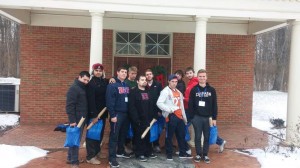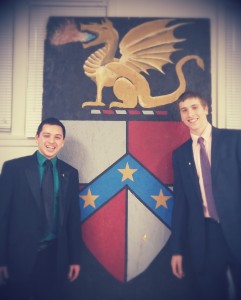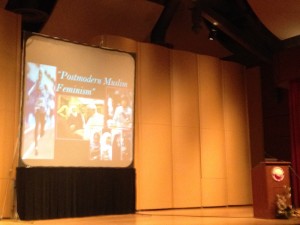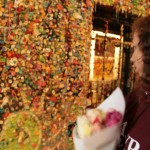In which the Tay, in her ever-present wisdom, reveals the truth of Daniel’s relationship with his fraternity by means of chart-topping pop music.
To my dear reader,
Every year, for several sessions of four days scattered throughout the summer and winter, over one hundred members and friends of the fraternity of Beta Theta Pi from across North America gather at Miami University in Oxford, Ohio. There among the endless stretch of fields, they participate in a leadership program entitled The Wooden Institute, named after the famous basketball coach and member of Beta John Wooden. The alumni of the fraternity and friends of Beta lead the undergraduate members in a series of programs, lectures and presentations on different leadership styles, tactics and applications.

On the campus of Miami University in Oxford, Ohio.
Looking back on my time at this short program and the four days in January I spent there, what I remember most clearly is not the leadership lectures or the plans for personal development I wrote. It is the music – namely, Taylor Swift and film scores.
For those of you so foolish as to not have been following my blog posts before this one, it is imperative that you know this: two of the things that I hold most dear are the music of Tay Swizz (praise be unto Her) and movie soundtracks. They make me feel empowered and elegant in equal shares – two things that I am unlikely to feel strongly in my everyday life. That being said, I came to this fraternity leadership program with no anticipation of them being relevant, and although Greek Life at the University of Puget Sound has been a relatively positive experience for me, I was tentative to place trust in a gathering of college men to whom I would be a stranger.
Upon arriving, the eighty undergraduates of Beta from across the nation were gathered into six “chapters” of twelve members that did not know one another whatsoever. This was, needless to say, a somewhat stilted and awkward interaction, filled with the necessary combination of dead silence and short burst of nervous laughter. But when we arrived at the room where we were to debrief on our new chapter’s get-to-know you activities, we were greeted by “Harry In Winter” – one of the best tracks from the score to “Harry Potter and the Goblet of Fire.”
“All right,” I thought tentatively. “Perhaps I may enjoy myself.”
Three days later, after learning of John Wooden’s life and the history of fraternal life and the many ways to trick people into working together, I sat in a chapter brother’s car as he drove us through the snow on the streets of Oxford on our way to one of the program’s last events. As his phone began to play a new song through his car’s stereo, he grinned and said “Oh man, let’s turn this up!” I had a moment of confusion as he turned up the volume of the speakers before I realized that the song was none other than Taylor Swift’s “Blank Space”. He rolled down the windows and we sang to the night – poorly, loudly and out of tune, but together.

Me and the other members of Chapter Five pose seductively before the fraternity’s Hall of Chapters.
Friendship is a curious thing, and like many other curious things, such as meatballs and childbirth, may be best left uninvestigated. But despite my trepidation and inhibition, four days of unravelling our lives and finding new ways to change the world around us brought me and my little band of brothers closer than I thought possible. The words of Tswag’s “Blank Space” ring true: “Hey, let’s be friends; I’m dying to see how this one ends; grab your passport and my hand…” And, as the Wooden Institute Demonstrated, I can, in fact, make the bad guys good for a weekend.
With the recent induction of our newest members, the Delta Epsilon colony of Beta Theta Pi at the University of Puget Sound gave to me a sophomore named Zachary Miller as a “Little Brother” – a new member to whom I am to be a “Big Brother” and provide mentorship and guidance. Needless to say, this is a recipe for hilarity and disaster, because Lord knows that any advice from me would likely end in chaos and general discomfort for everyone involved. But a great deal of time has passed since last I felt this excited about anything, and as disastrously as it may end, I am thrilled to share what wisdom I gleaned from my time at Oxford University. Zachary Miller and all the other new members of Beta Theta Pi had best prepare themselves, because after seeing these boys…

Zachary Miller (right) and myself (left): a very big little and a very little big.
…all I can think is “Oh my God, look at that face; you look like my next mistake.”
Love’s a game. Wanna play?
With all due respect,
Daniel Wolfert






